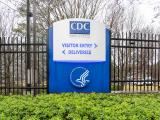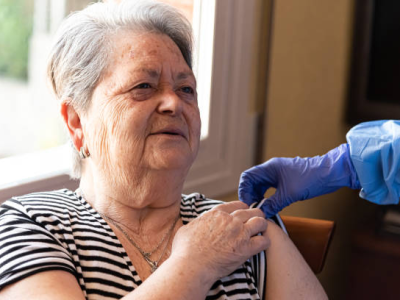Jan 14, 2010
Taylor named FDA deputy chief for foods; USDA slot still empty
Michael R. Taylor, JD, has been named as the US Food and Drug Administration's (FDA's) first deputy commissioner for foods, a position that was created last August to raise the profile of food safety at the FDA, the agency said yesterday. His task will be to "help FDA to develop and implement a prevention based strategy for food safety, plan implementation of new food safety legislation, and ensure that food labels contain clear and accurate information on nutrition," the agency said. Taylor started his career as a staff attorney at the FDA and later worked in food safety at the US Department of Agriculture (USDA), where he guided the development of the HAACP (hazard analysis/critical control point) rule for meat and poultry and worked on the problem of E coli O157:H7 in meat. Before returning to the FDA as senior adviser to the commissioner in July 2009, he was a research professor in public health at
George Washington University. Meanwhile, the top food safety job at the USDA, undersecretary for food safety, is still vacant nearly a year after President Obama took office, Government Executive reported this week. The administration is having trouble filling the job because it doesn't want a former lobbyist for either food companies or consumer groups, the story said.
Jan 13 FDA statement
Jan 12 Government Executive report
Nestle reports tainted cookie dough, announces new safety step
Nestle USA said yesterday it has found two Toll House cookie dough samples contaminated with E coli O157:H7 and simultaneously announced it would begin using heat-treated flour to guard against contamination of its refrigerated cookie dough products. The company said it was not recalling any products because no contaminated batches left the factory. Nestle adopted a new testing protocol in its Danville, Va., factory last summer after its Toll House cookie dough was suspected as the cause of a multistate E coli outbreak. Conversion of the factory to use heat-treated flour began yesterday, and production with the new ingredient will begin Jan 25, officials said. The new products will begin reaching stores in early March, and consumers might see some shortages in the interim. The company still strongly advises consumers not to eat raw cookie dough.
Biodefense roundtable airs business challenges
Executives from biodefense firms and officials from US government departments met during a roundtable in San Francisco hosted by consultant group FreeMind to discuss several issues related to funding, according to a press release yesterday. FreeMind specializes in helping companies and institutions raise money through grants and contracts. Roundtable participants discussed the need for better transparency from government on what it expects from companies, such as milestones, results, and priorities. The parties also discussed what would happen if venture capital groups are allowed to compete for federal dollars. Other topics included intellectual property issues, particularly reagents, investigation of licensed drugs for off-label uses in response to bioterror threats, and using the National Institute of Allergy and Infectious Diseases (NIAID) centers of excellence as business incubators rather than strictly for academic research.


















